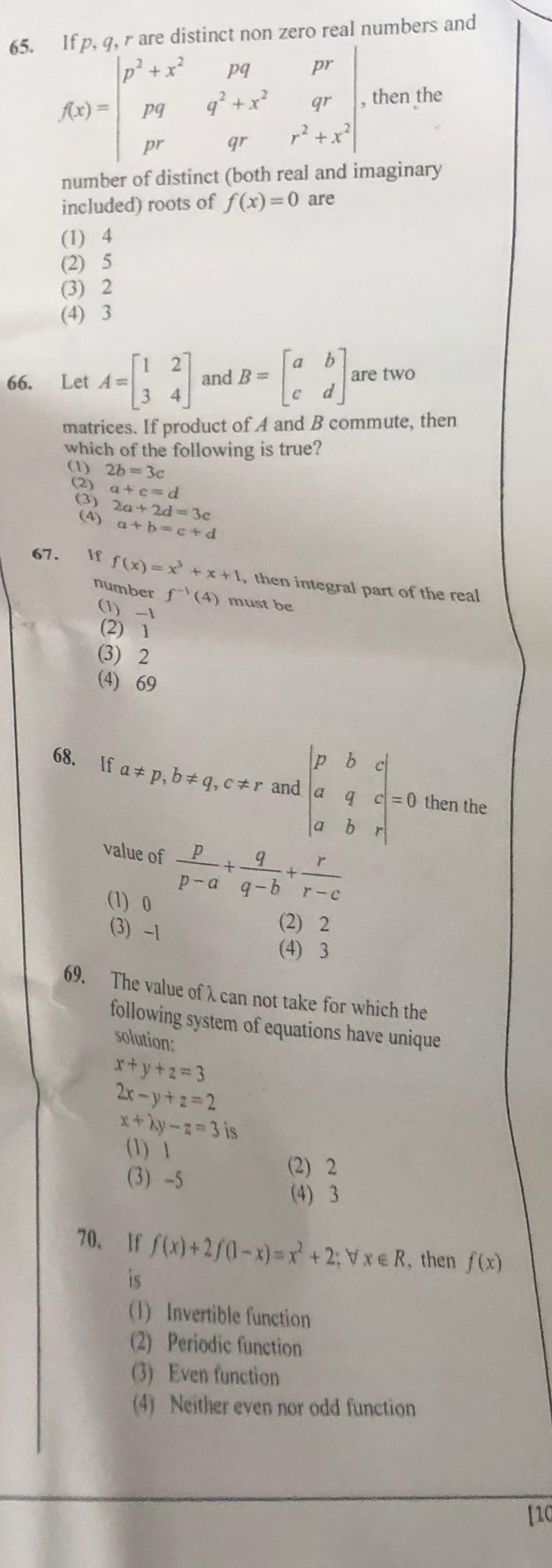Question
Question: If p, q, r are distinct non zero real numbers and $$f(x) = \begin{vmatrix} p^2+x^2 & pq & pr \\ pq &...
If p, q, r are distinct non zero real numbers and f(x)=p2+x2pqprpqq2+x2qrprqrr2+x2 , then the number of distinct (both real and imaginary included) roots of f(x) = 0 are

4
5
2
3
3
Solution
The given determinant is: f(x)=p2+x2pqprpqq2+x2qrprqrr2+x2 This matrix can be written as M=vvT+x2I, where v=pqr and I is the 3x3 identity matrix. The determinant of such a matrix is given by det(x2I+vvT)=(x2)n+vTv⋅(x2)n−1, where n is the order of the matrix. Here, n=3. So, f(x)=(x2)3+(p2+q2+r2)⋅(x2)3−1 f(x)=x6+(p2+q2+r2)x4 f(x)=x4(x2+p2+q2+r2)
To find the roots of f(x)=0, we set: x4(x2+p2+q2+r2)=0
This equation yields two sets of roots:
- x4=0⟹x=0 (This is a root with multiplicity 4).
- x2+p2+q2+r2=0⟹x2=−(p2+q2+r2). Since p,q,r are distinct non-zero real numbers, p2>0,q2>0,r2>0. Thus, p2+q2+r2>0. Let K=p2+q2+r2. Then x2=−K. The roots are x=±−K=±iK=±ip2+q2+r2. These are two distinct imaginary roots.
The roots of f(x)=0 are 0,0,0,0,ip2+q2+r2,−ip2+q2+r2. The distinct roots are 0, ip2+q2+r2, and −ip2+q2+r2. Therefore, there are 3 distinct roots.
